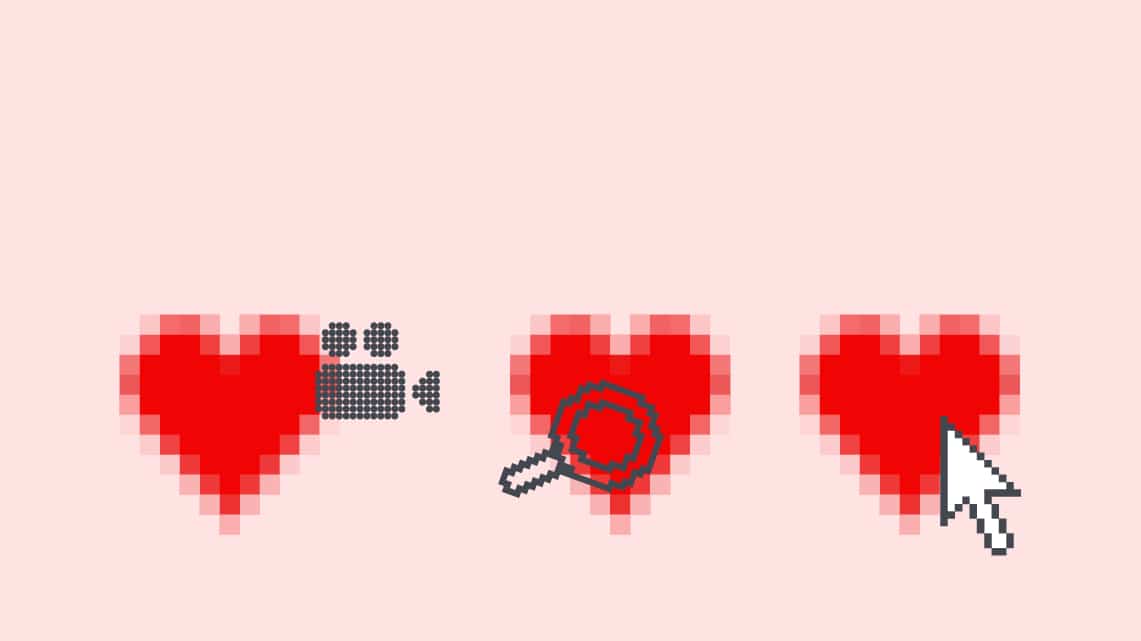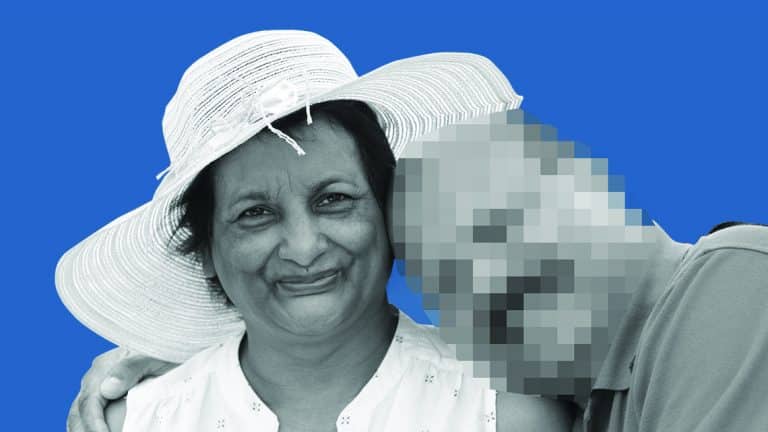Safe online relationships
Relationships are complex and sometimes it can be hard to know if what the person you are dating is doing are normal relationship behaviours. If you’re worried, this advice may help. RELATIONSHIP RED FLAGS Here’s some things that are never okay to do to someone you’re dating or are in a relationship with: messaging mean…

Relationships are complex and sometimes it can be hard to know if what the person you are dating is doing are normal relationship behaviours. If you’re worried, this advice may help.
RELATIONSHIP RED FLAGS
Here’s some things that are never okay to do to someone you’re dating or are in a relationship with:
- messaging mean things to them, and making them feel bad about themselves
- threatening them with harm or embarrassment to get what you want
- reading their private texts or emails without their consent
- spying or monitoring them on digital devices and social networks
- expecting a partner to check in constantly (this could be via text or social media)
- taking and/or sharing intimate images of your partner without their consent
- creating fake accounts to send messages to your partner or their friends and family
If any of these things are happening, or something else that is making you feel scared or worried, you might want to contact one of the organisations listed at the bottom of this page. If you or someone else is in immediate danger, contact the police.
RELATIONSHIP BREAKUPS
If things don’t work out, it’s important to think about what content your ex has access to and what you need to update to keep yourself safe.
- Change your passwords: It’s not uncommon for people to share their passwords or other security information with their partner. If you break up it’s important to think about whether your ex has access to any of your accounts. It’s a good idea to change the passwords and security questions to all of your accounts, just to be safe.
- Privacy settings: If you’ve gone through a break-up make sure you check your privacy settings and make sure they are up to date. It’s important you know who you are sharing your information with online so you can keep yourself safe.
- Location sharing: A lot of apps allow people to share their location with friends and family. Make sure you’re not still sharing this information with your ex. Examples of some apps that may be sharing your location include Snap Map, Nearby Friends on Facebook, Find my iPhone and location sharing on Apple and Android devices.
- Intimate content: If you’ve shared nude images with your ex it might be a good idea to contact them and ask them to delete them.
NUDES
If you are thinking about sending nudes or naked images to someone here are a few things to think about first.
Is it your idea? It’s not okay to feel pressured or coerced (and it is not okay to put pressure on someone else). If you feel uncomfortable sharing a picture of yourself, choose a way to express yourself that won’t put you at risk of overexposure or feel awkward if other people see the image at a later point.
Where could it end up? As soon as you send any type of content it becomes more difficult to control where it ends up. It’s easy for people to share and spread images and videos online. Someone sharing nudes images of you without your consent is never your fault, but it’s important to think about the risks before you hit ‘send’.
What are the risks? For a lot of young people they don’t think anything bad will happen to them or they believe it is a harmless behaviour that everyone is doing – or they think that’s what you do when you love someone.
It’s easy for private pictures and videos to be shared outside of their intended audience, especially if a relationship or friendship ends badly. Once an image is sent to someone else it’s difficult to control what might happen to it. Sharing naked or semi naked content, even in a trusted relationship, can see images or videos reposted or shared as a joke.
There are also situations where people blackmail others into sending more intimate images, by threatening to release the original image/video if they don’t send more. This can lead to online bullying, abuse and harassment and sometimes significant distress.
How often are people sharing nudes? Netsafe research shows that the rates of young people sharing nude images of themselves is relatively low (just four percent of young people aged between 14-17 surveyed). What is more common is the pressure to share these images – one in five young people have been asked to send a nude image.
For more information visit our ‘Nudes & Sexting‘ page or our ‘Nudes – info for young people‘ page.
If someone has shared an intimate or nude image or video of you without your consent you should contact Netsafe for help.
HELPING A FRIEND
If you think a friend is getting involved with someone who doesn’t treat them well and tries to hurt or control them, talk with them about it. Tell them your concerns and let them know that you’re there to support them in any of their relationships.
Shine and other domestic or family violence organisations can provide support and advice on how to talk to a friend if you are concerned about their safety.
GET HELP
- Police – Call 111. If you or someone you know are at risk of imminent danger or a crime is being committed contact 111 immediately for help.
- Shine – 0508 744 633. A free helpline to provide support for people who have experienced abuse by a partner or family member, people who use violence and want to make a change, and people who are worried about a friend or family member.
- Women’s Refuge – 0800 REFUGE or 0800 733 843. A free support service to people who have been victims of domestic or family violence.
- Netsafe – Text ‘Netsafe’ to 4282, call 0508 NETSAFE (0508 638 723), email [email protected] or report online. Netsafe can provide help and support with online challenges including online bullying, harassment and abuse.
- Help (Auckland) – 09 623 1700 or [email protected]. A free 24 hour helpline to support victims of sexual assault.
- Help (Wellington) – 04 801 6655 or contact online. A free 24 hour helpline to support victims of sexual assault.
- Youthline – 0800 376 633, Free TXT 234 or email [email protected]. Youthline provides a free counselling service for young people.
- Lifeline Suicide Crisis Helpline – 0508 TAUTOKO (0508 828 865). A free 24 hour suicide crisis helpline operated by trained counsellors.
- Need to Talk – Free text or call 1737. A free 24 hour call or text help line operated by trained counsellors.
- Rape Prevention Education – Contact online. Provides education and information to prevent sexual violence.
- Family Violence – 0800 456 450 to find out about local services or how to help someone near you.
- Elder Abuse Helpline – call 0800 32 668 65 (0800 EA NOT OK) – a 24-hour service answered by registered nurses who can connect to local elder abuse specialist providers.
- Tu Wahine Trust – 09 838 8700 for kaupapa Māori counselling, therapy and support for survivors of sexual harm (mahi tukino) and violence within whānau.
- Shakti New Zealand – 0800 742 584 for culturally competent support services for women, children and families of Asian, African and Middle Eastern origin who have experienced domestic violence.
- Safe to Talk – sexual harm helpline. Call 0800 044 334, text 4334 or email [email protected].
- Rape Crisis Centres – 0800 88 3300 for contact details of your local centre. Provides support for survivors of sexual abuse, their families, friends and whānau.
- Male Survivors Aotearoa New Zealand – 0800 044 344. Offers one-to-one, peer and support groups for male survivors of sexual abuse and their significant others.
- Hey Bro helpline – 0800 HeyBro (0800 439 276). 24/7 help for men who feel they’re going to harm a loved one or whānau member.
- Korowai Tumanoko – Text or call 022 474 7044 for a kaupapa Māori service for those with concerning or harmful sexual behaviour.
- Stop – support for concerning or harmful sexual behaviour.
- Kidsline – 0800 54 37 54 (0800 kidsline) for young people up to 18 years of age (24-hour service).
- Skylight – 0800 299 100 helping children, young people and their families and whānau through tough times of change, loss, trauma and grief.
- Oranga Tamariki – 0508 325 459 (0508 FAMILY) or email [email protected] for concerns about children and young people.
- Safe Bubble – also known as ‘it’s ok to ask for help’ is the NZ Government’s centralised site with general support during lockdown periods for those experiencing domestic violence.
CONTACT NETSAFE
If you or someone you know needs help or advice about something that’s happened online, you can contact us seven days a week for free and confidential advice.
- Text ‘Netsafe’ to 4282
- Fill out an online contact form
- Email [email protected]
- Call us free phone on 0508 NETSAFE (0508 638 723).
Our helpline is open seven day a week. If you’re concerned about the immediate safety of you or someone else, call 111.




